Animals
-
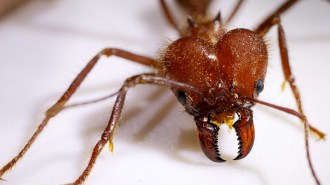 Animals
AnimalsHow metal-infused jaws give some ants an exceptionally sharp bite
Some small animals make cuts, tears and punctures that they couldn’t otherwise do using body parts reinforced with metals such as zinc and manganese.
By Jake Buehler -
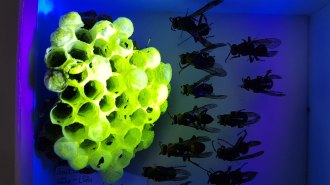 Animals
AnimalsSome wasps’ nests glow green under ultraviolet light
Some Asian paper wasps’ nests fluoresce so brilliantly that the glow is visible from up to 20 meters away.
By Nikk Ogasa -
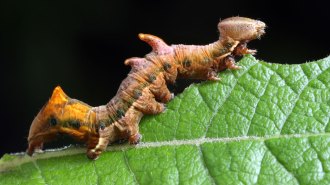 Animals
AnimalsStreetlights, especially super bright LEDs, may harm insect populations
Greenery under streetlights housed half as many caterpillars as darker areas did, researchers found.
-
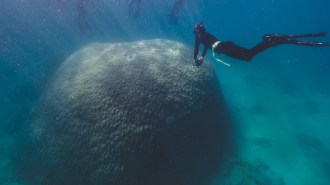 Life
LifeAn incredibly resilient coral in the Great Barrier Reef offers hope for the future
At more than 400 years old, a massive coral off the coast of Australia has endured as many as 80 cyclones and 99 bleaching events.
By Nikk Ogasa -
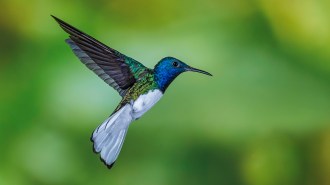 Animals
AnimalsFemale hummingbirds may sport flashy feathers to avoid being harassed
Some female white-necked jacobin hummingbirds boast bright blue plumage that’s similar to males. The colors may help females blend in to avoid attacks.
-
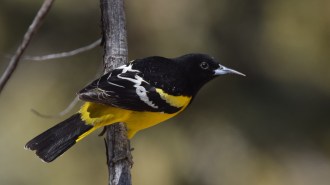 Science & Society
Science & SocietyRacism lurks in names given to plants and animals. That’s starting to change
Racist legacies linger in everyday lingo for birds, bugs and more. Some scientists see the chance to change that.
-
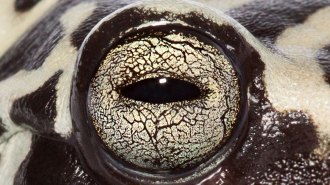 Animals
AnimalsFrog and toad pupils mainly come in seven different shapes
Analyzing over 3,200 species revealed that the colorful eyes of frogs and toads have pupils shaped as slits, diamonds, fans and more.
-
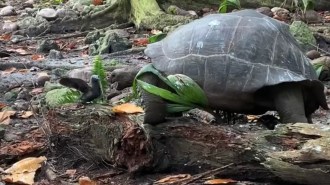 Animals
AnimalsA giant tortoise was caught stalking, killing and eating a baby bird
Video captures the first documented instance of a tortoise hunting another animal.
-
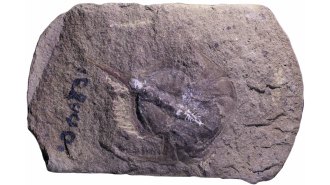 Paleontology
PaleontologyHow fossilization preserved a 310-million-year-old horseshoe crab’s brain
A 310-million-year-old horseshoe crab’s brain was preserved in clay, thanks to an uncommon fossilization process that protected the fragile neural tissues.
-
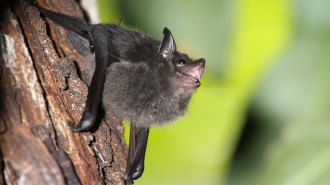 Animals
AnimalsThese baby greater sac-winged bats babble to learn their mating songs
Greater sac-winged bat pups babble their way through learning their rich vocal repertoire, similar to how human infants babble before speaking.
-
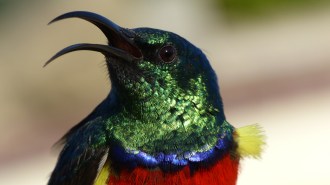 Animals
AnimalsSunbirds’ dazzling feathers are hot, in both senses of the word
Iridescent feathers reflect vivid colors. But they also become scorching hot in the sunlight, a study finds.
By Jake Buehler -
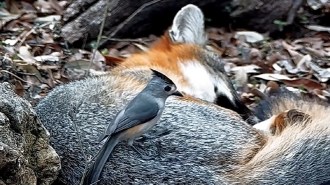 Life
LifeScientists have a new word for birds stealing animal hair
Dozens of YouTube videos show birds stealing hair from dogs, cats, humans, raccoons and even a porcupine — a behavior rarely documented by scientists.